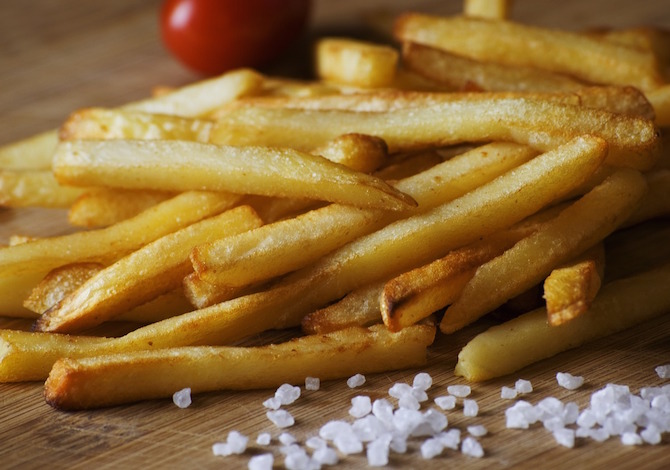Salty foods increase thirst but only in the short term: in reality they also push us to eat more and can trigger quite serious pathologies. An important one tells it research that simulated a human’s journey to Mars and which was conducted by an international team composed of scientists from Vanderbilt University (USA), the Max Delbruck Center for Molecular Medicine (MDC) and the German Space Agency (DLR).
An important study on salty foods
The study overturns previous research and establishes some important concepts that are also useful in our daily behavior. If we’ve always had the feeling that chips, pretzels and peanuts, tasty as they are, are thirst-quenching, things are not exactly like that (and are actually much more complex). In conducting the tests of the flight simulation on Mars, the research group focused on the problems of feeding the astronauts, the first of which is the management of water reserves, which are very precious during the long journey to the red planet .
> Read also: Two Annurca apples a day to fight cholesterol
The journey to Mars
The scholars subjected 10 male volunteers to an experience in a capsule that simulated space travel. One group remained in the small spaceship for 105 days, another for 205, both following the same diet, except for a few weeks in which the quantities of salt were changed (6, 9 or 12 grams per day). And here’s the surprise: the cosmonauts whose dose of salt had been increased (from 6 to 12 grams per day) had unexpected behavior, that is, they drank less and ate more than the others. The same mechanism then occurred in a similar experiment on mice. Basically it has emerged that a diet rich in salt induces the body to save water but to increase hunger.
> Read also: Mediterranean diet, a guarantee against cardiovascular diseases
Destructive adaptation
The reason for this mechanism is due to some molecules, i glucocorticoids, which break down muscle protein to turn it into urea, which in turn helps the body reabsorb water in the kidneys. If on the one hand, therefore, the feeling of thirst induced by salty food increases, on the other it seems that it lasts only a short time, and that it actually helps to save water in 24 hours, which is useful in extreme conditions such as a trip to Mars. The other aspect is that this adaptive dynamic of our body in avoiding dehydration has as a consequence that of a muscle degeneration, which are deprived of their proteins. The consequences are serious: to conserve water, the body squeezes the muscles and draws on the energy reserve, exposing us to high risks of diabetes and cardiovascular disease.
> Read also: High blood pressure, cholesterol and diabetes: is it better to run or walk to reduce them?
Better hunger or thirst?
Il paperpublished on Journal of Clinical Investigation, explains that to survive, the body adapts again: to avoid the destruction of our body, the feeling of hunger is induced, precisely for the maintenance of muscle tone and energy conservation. This pushes us to eat more (and not drink more) after consuming salty foods. In short, the study makes it clear that salt influences the body’s energy consumption and explains that a diet too rich in salt has negative consequences beyond what we imagined and beyond what science has told so far.
> Read also: Hypertension, the 3 principles for a healthy diet that lowers blood pressure
Advertising
